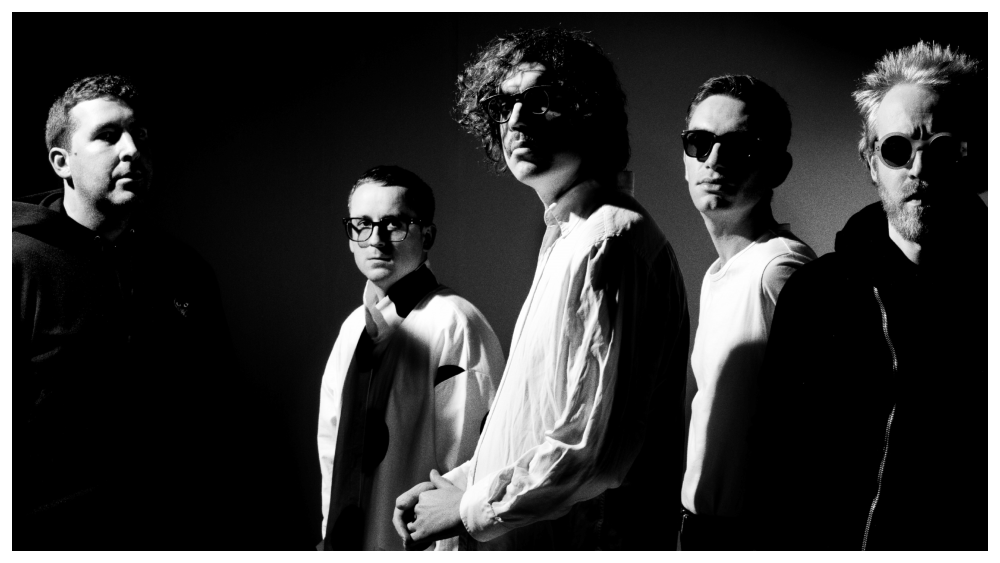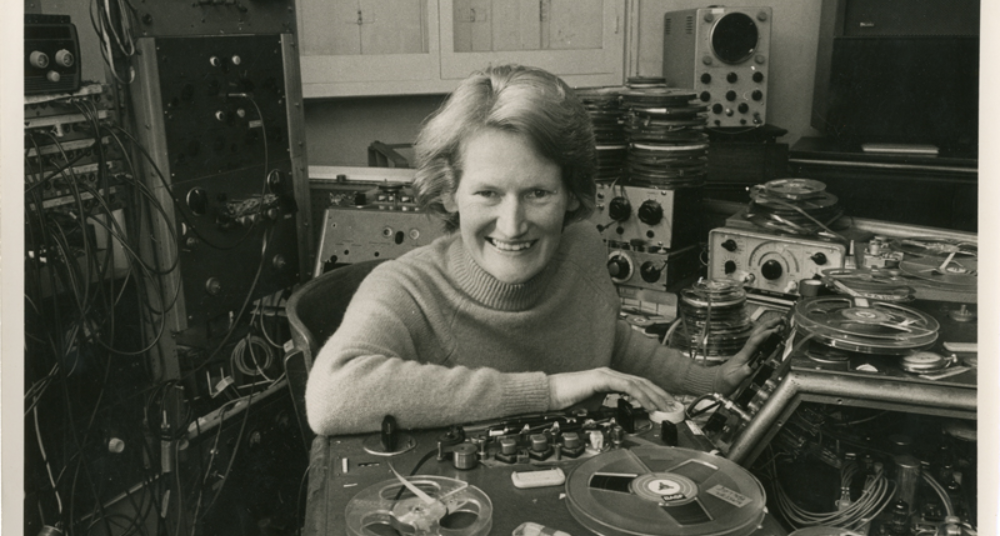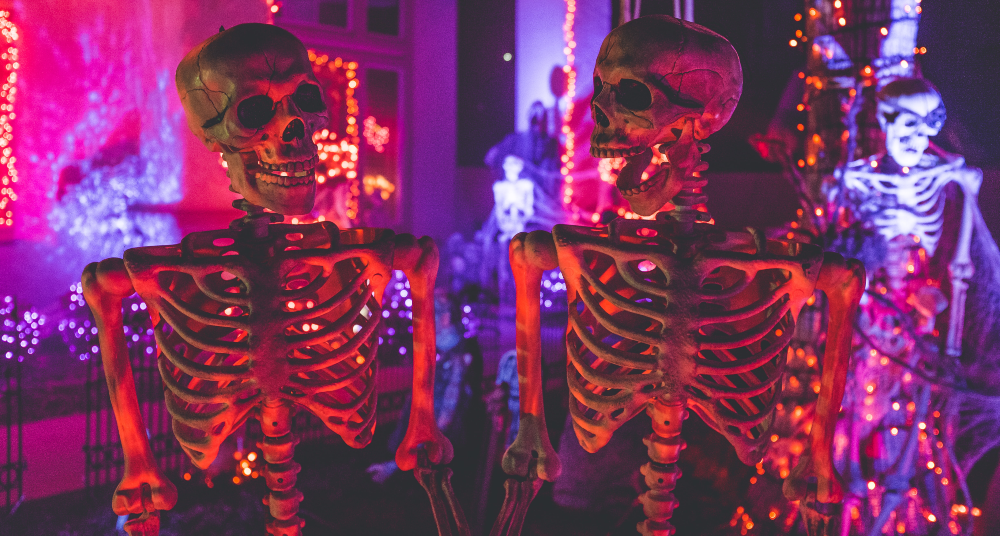Synth pioneer Andy McCluskey talks to Anita Awbi about the murky world of chart domination and explains why the time is right for an OMD renaissance…
Prolific pop songwriter Andy McCluskey doesn’t seem to rate musicianship all that highly: ‘For every really great song that is written there are tens of thousands of people that can perform it,’ he surmises. ‘It might offend your readers, but it’s the way I see it. I’ve never wanted to be a great musician. What’s the point? It doesn’t mean you can write good songs.’
Andy, now 53, has all the bravado of a precocious young talent, brazen and refreshingly honest. It’s a trait that has governed his musical career and helped shape an important era in British pop. Together with Paul Humphreys, Andy was responsible for a clutch of decade-defining moments as eighties experimental group OMD. Their soaring synth lines and elusive choruses were an instant hit when they first emerged from Liverpool in 1978, putting them in good stead for the epoch of electronic pop. As Orchestral Manoeuvres in the Dark, later OMD, they sold more than 40 million records worldwide — not bad for a band that originally got together to emulate Kraftwerk.
‘Orchestral Manoeuvres in the Dark was only invented as a band with a stupid name to do one gig!’ chuckles Andy. ‘That was it. We just wanted to say we’d played on stage once. No one was more surprised than us when what we thought was experimental music — and all our friends thought was shit — turned out to be big fat pop hits. Perhaps, largely unconsciously, what we’d done is distil out of Kraftwerk, Roxy Music and David Bowie a sort of catchy British electric pop thing. It was instinctive.’
Instinctive, unconscious, whatever; Factory Records impresario Tony Wilson saw their pop credentials a mile off. In 1979 he invited them to play at his Manchester club following an earlier warm-up stint for Joy Division at a Liverpool venue. Soon after, he released their stark debut single, Electricity. Andy remembers: ‘After a week of being badgered by his first wife, Tony turned round to us and said, “Actually, you two are the future of pop music — would you like to make a record with us?” And we said, “Yes, we’d love to make a record. But fuck off, we’re not pop!”’
Despite Andy’s insistence on their outsider credentials, OMD’s chart-busting 1981 album Architecture and Morality yielded three top five singles — Souvenir, Joan of Arc and Maid of Orleans — and brought them the international acclaim they still benefit from to this day.
Tellingly, after they progressed to major label Dindisc (Virgin Records imprint), OMD’s new A&Rs challenged the band to define themselves — ‘Do you want to be ABBA or Stockhausen?’ To which Andy infuriatingly replied, ‘Both’. Career suicide was to follow.
Two years after Architecture and Morality, Andy and Paul delivered Dazzle Ships, a challenging record rich in Cold War allegory, radio wave samples and experimental synth solos. Overnight they reportedly lost three million fans. Unlike its predecessor, the album carried no obvious singles and swapped addictive synth lines for an awkward musique concrète aesthetic. Today, it stands up as an interesting relic from a peculiar moment in pop history, while critics and fans declare it their best work so far.
‘Funnily enough, Dazzle Ships is not my biggest regret. Looking back over our catalogue, I think we made our sharpest and most poignant music when we chose not to give a damn about record sales. It was when we were running around trying to sell records and touring America for nine months on end and exhausting ourselves, we found we would go back to a well of ideas that was dry because we hadn’t had the chance to fill it up again,’ Andy says.
They returned to a more commercial sound for subsequent albums, supplementing their line-up until the band split in 1988 with the departure of Paul. During the nineties Andy continued to write as OMD until ‘raising his head up in 1996 to realise that Britpop had taken over the charts and synth-pop was well and truly out’. He set about realising his pop ambitions by forming girl group Atomic Kitten and, together with songwriter and producer Stuart Kershaw, penned their number one hit Whole Again. It was during this time that he first caught sight of pop’s murkier underbelly.
‘I learned what an absolutely shitty industry the recorded music business is!’ he exclaims. How these poor artists were completely used as fodder. Myself and Stuart treated those girls like our daughters. We had a sense of obligation to them.
‘Celine Dion and Britney Spears both wanted Whole Again, but we said no because it was Atomic Kitten’s song and we wanted them to have the hit around the world. And boy did we feel stupid six months later when we had our contract torn up.’
Full of hindsight and yearning to play live again, Paul and Andy reunited in 2008. The album History of Modern followed two years later. Now as they prepare for the release of their 12th studio album English Electric, they seem remarkably reinvigorated and ready to push on; with a CV like theirs, anyone would think they’re primed for sanctification. But despite their cavalier attitude and solid pop nouse, time hasn’t always been as kind to Andy and Paul as some of their hallowed peers. It’s hard to fathom why.
Prolific pop songwriter Andy McCluskey doesn’t seem to rate musicianship all that highly: ‘For every really great song that is written there are tens of thousands of people that can perform it,’ he surmises. ‘It might offend your readers, but it’s the way I see it. I’ve never wanted to be a great musician. What’s the point? It doesn’t mean you can write good songs.’
Andy, now 53, has all the bravado of a precocious young talent, brazen and refreshingly honest. It’s a trait that has governed his musical career and helped shape an important era in British pop. Together with Paul Humphreys, Andy was responsible for a clutch of decade-defining moments as eighties experimental group OMD. Their soaring synth lines and elusive choruses were an instant hit when they first emerged from Liverpool in 1978, putting them in good stead for the epoch of electronic pop. As Orchestral Manoeuvres in the Dark, later OMD, they sold more than 40 million records worldwide — not bad for a band that originally got together to emulate Kraftwerk.
‘Orchestral Manoeuvres in the Dark was only invented as a band with a stupid name to do one gig!’ chuckles Andy. ‘That was it. We just wanted to say we’d played on stage once. No one was more surprised than us when what we thought was experimental music — and all our friends thought was shit — turned out to be big fat pop hits. Perhaps, largely unconsciously, what we’d done is distil out of Kraftwerk, Roxy Music and David Bowie a sort of catchy British electric pop thing. It was instinctive.’
Instinctive, unconscious, whatever; Factory Records impresario Tony Wilson saw their pop credentials a mile off. In 1979 he invited them to play at his Manchester club following an earlier warm-up stint for Joy Division at a Liverpool venue. Soon after, he released their stark debut single, Electricity. Andy remembers: ‘After a week of being badgered by his first wife, Tony turned round to us and said, “Actually, you two are the future of pop music — would you like to make a record with us?” And we said, “Yes, we’d love to make a record. But fuck off, we’re not pop!”’
Despite Andy’s insistence on their outsider credentials, OMD’s chart-busting 1981 album Architecture and Morality yielded three top five singles — Souvenir, Joan of Arc and Maid of Orleans — and brought them the international acclaim they still benefit from to this day.
Tellingly, after they progressed to major label Dindisc (Virgin Records imprint), OMD’s new A&Rs challenged the band to define themselves — ‘Do you want to be ABBA or Stockhausen?’ To which Andy infuriatingly replied, ‘Both’. Career suicide was to follow.
Two years after Architecture and Morality, Andy and Paul delivered Dazzle Ships, a challenging record rich in Cold War allegory, radio wave samples and experimental synth solos. Overnight they reportedly lost three million fans. Unlike its predecessor, the album carried no obvious singles and swapped addictive synth lines for an awkward musique concrète aesthetic. Today, it stands up as an interesting relic from a peculiar moment in pop history, while critics and fans declare it their best work so far.
‘Funnily enough, Dazzle Ships is not my biggest regret. Looking back over our catalogue, I think we made our sharpest and most poignant music when we chose not to give a damn about record sales. It was when we were running around trying to sell records and touring America for nine months on end and exhausting ourselves, we found we would go back to a well of ideas that was dry because we hadn’t had the chance to fill it up again,’ Andy says.
They returned to a more commercial sound for subsequent albums, supplementing their line-up until the band split in 1988 with the departure of Paul. During the nineties Andy continued to write as OMD until ‘raising his head up in 1996 to realise that Britpop had taken over the charts and synth-pop was well and truly out’. He set about realising his pop ambitions by forming girl group Atomic Kitten and, together with songwriter and producer Stuart Kershaw, penned their number one hit Whole Again. It was during this time that he first caught sight of pop’s murkier underbelly.
‘I learned what an absolutely shitty industry the recorded music business is!’ he exclaims. How these poor artists were completely used as fodder. Myself and Stuart treated those girls like our daughters. We had a sense of obligation to them.
‘Celine Dion and Britney Spears both wanted Whole Again, but we said no because it was Atomic Kitten’s song and we wanted them to have the hit around the world. And boy did we feel stupid six months later when we had our contract torn up.’
Full of hindsight and yearning to play live again, Paul and Andy reunited in 2008. The album History of Modern followed two years later. Now as they prepare for the release of their 12th studio album English Electric, they seem remarkably reinvigorated and ready to push on; with a CV like theirs, anyone would think they’re primed for sanctification. But despite their cavalier attitude and solid pop nouse, time hasn’t always been as kind to Andy and Paul as some of their hallowed peers. It’s hard to fathom why.
Other early synth-pop pioneers such as Human League, Depeche Mode and Brian Eno went on to build everlasting stadium careers or were endowed with endless cool. Meanwhile, the fortunes of OMD have gently ebbed and flowed. Looking back, it’s clear to see that their dramatic bursts of success have been matched by quiet lulls of inactivity and meandering creativity. Until fairly recently, serious cult status and widespread reverence seemed to elude them. Perhaps with the imminent release of English Electric, it’s time for a reappraisal?
It is an instantly recognisable OMD album, straight and solid in concept and simple in execution. Arrangements are pared down and every single noise counts as the duo concentrate on filtering their sound into its purest form. It reverberates with the ease of their first couple of albums, and you can hear references to their divisive record Dazzle Ships in there too. It’s clear that Andy and Paul have spent some time revisiting their previous output, deciphering their strengths and combining them with 21st century influences.
Andy has recently covered two songs by The xx, and makes no secret of the effect their stark minimalism has had on him. He also looks to Robyn, Glasvegas and glitch artist Atom TM for inspiration. ‘I make a point of searching for things and I have discovered a lot of very interesting new music,’ he says. ‘It’s almost as though we had to hear other people’s work to get a clear handle on our own. To some degree we’ve learned from the fact that younger bands with their quiet confidence are prepared to strip things down.
‘We know we can’t change the world anymore. Aged 22 I realised that, despite having sold millions of singles and albums, the outcome hadn’t been as I’d intended. Oh fuck, what are we going to do now, I thought. We spent the next 30 years trying to work out the answer to that one!’ After a few listens of English Electric, it becomes obvious they are still enjoying working on that riddle.
Check out Andy McCluskey's Spotify playlist, featuring Purity Ring and Slow Magic.
It’s almost as though we had to hear other people’s work to get a clear handle on our own.
It is an instantly recognisable OMD album, straight and solid in concept and simple in execution. Arrangements are pared down and every single noise counts as the duo concentrate on filtering their sound into its purest form. It reverberates with the ease of their first couple of albums, and you can hear references to their divisive record Dazzle Ships in there too. It’s clear that Andy and Paul have spent some time revisiting their previous output, deciphering their strengths and combining them with 21st century influences.
Andy has recently covered two songs by The xx, and makes no secret of the effect their stark minimalism has had on him. He also looks to Robyn, Glasvegas and glitch artist Atom TM for inspiration. ‘I make a point of searching for things and I have discovered a lot of very interesting new music,’ he says. ‘It’s almost as though we had to hear other people’s work to get a clear handle on our own. To some degree we’ve learned from the fact that younger bands with their quiet confidence are prepared to strip things down.
‘We know we can’t change the world anymore. Aged 22 I realised that, despite having sold millions of singles and albums, the outcome hadn’t been as I’d intended. Oh fuck, what are we going to do now, I thought. We spent the next 30 years trying to work out the answer to that one!’ After a few listens of English Electric, it becomes obvious they are still enjoying working on that riddle.
Check out Andy McCluskey's Spotify playlist, featuring Purity Ring and Slow Magic.




